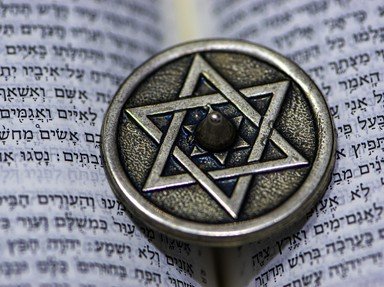Quiz Answer Key and Fun Facts
1. At what age is a Jewish person when he or she first receives a blessing asking for a good marriage?
2. A young Jewish person looks for their "one and only" or their "match made in heaven". What is the Yiddish term for that special person?
3. The lucky couple have finally found one another! In many cases, an engagement party will precede the wedding. What do the mothers of the bride and groom customarily do at the engagement party?
4. You are a single human being between the age of 13 and 120. How will you be greeted at the wedding of your Jewish friends or relatives?
5. What would a traditional, Orthodox couple do the week before the wedding?
6. At a traditional Orthodox wedding, the bride and groom receive their guests separately. Shortly before the actual ceremony begins, the groom approaches the bride. What does he do at this time?
7. Which of the following is NOT part of a traditional, Orthodox wedding ceremony?
8. At the end of the ceremony, the groom breaks a glass by stamping on it. What does this symbolize?
9. What kind of dancing will you NOT see at a traditional, Orthodox wedding?
10. It isn't necessary to serve a real meal at a Jewish wedding. Some cold drinks and cookies will suffice.
Source: Author
janetgool
This quiz was reviewed by FunTrivia editor
CellarDoor before going online.
Any errors found in FunTrivia content are routinely corrected through our feedback system.

